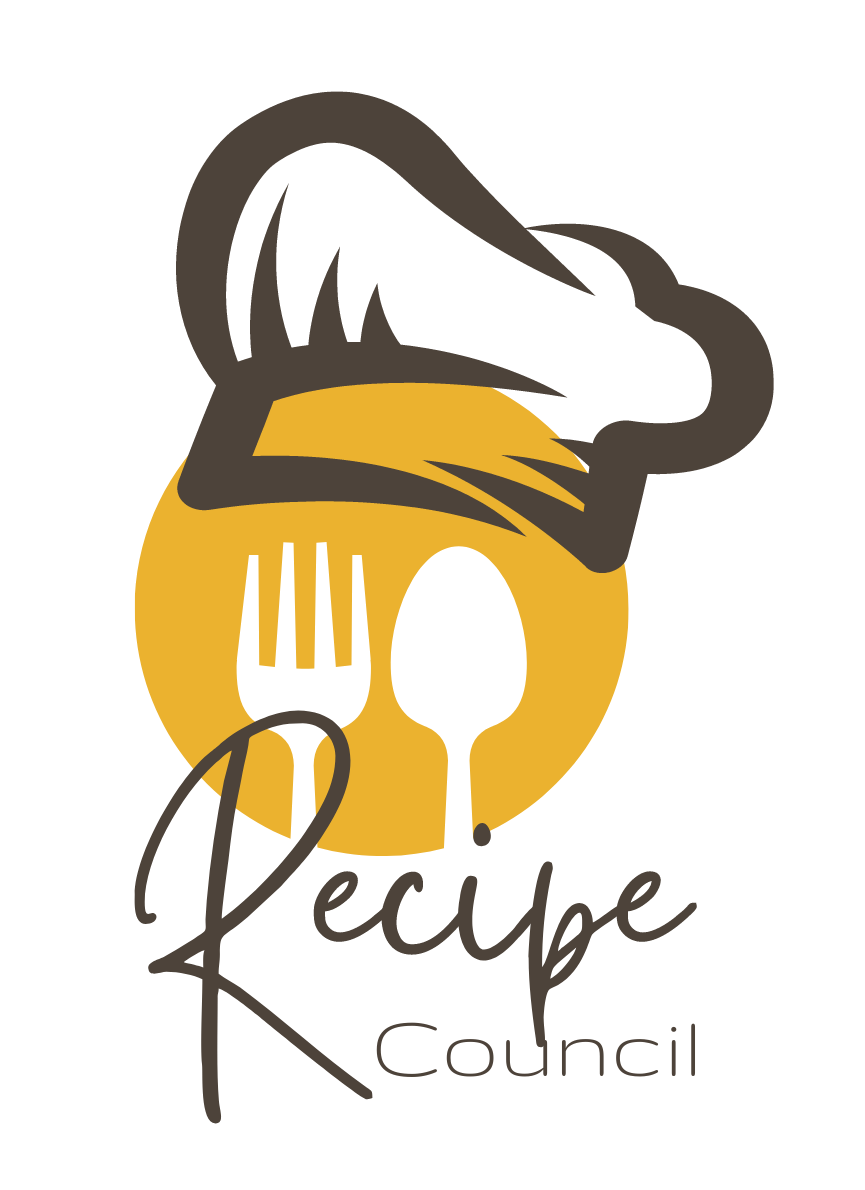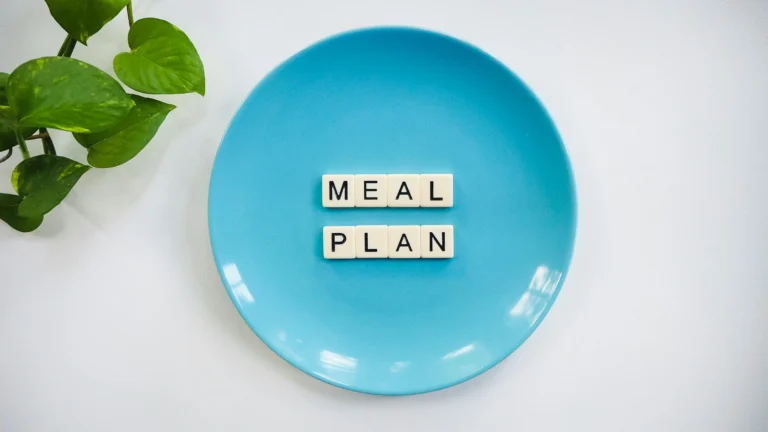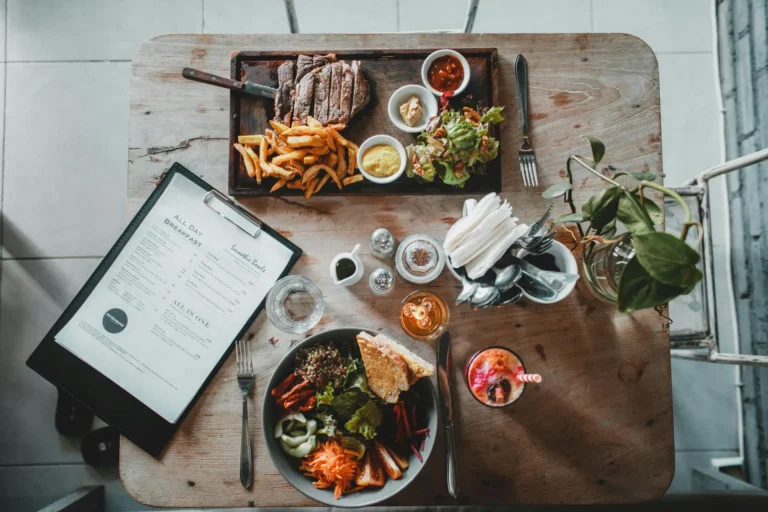Weight Loss Food Programs: A Guide to Shedding Pounds Effectively
For many, weight loss is a popular aim and the right food program can make all the difference. This guide will help you to know different types of weight loss food programs, how they operate, and which is probably best for you. By the end of this article, you’ll have a clearer picture of how to pick and stick to a weight loss food program that matches your requirements and tastes.
Understanding Weight Loss Food Programs
What are Weight Loss Food Programs?
Weight loss food programs are planned eating schedules that can help individuals lose their extra weight. Such programs often include recommendations regarding what one should eat, meal sizes or portions, and when meals should be taken. Some programs provide pre-packaged meals while others offer recipes and meal plans.
Why Are They Effective?
Weight loss food programs work because they give users an obvious route to follow. This structure assists individuals in making better choices about foods that they consume rather than overeating them. Besides, there are many policies based on scientific principles meant for losing weight such as lowering calorie consumption or adequate diet supply.
Weight loss food program types
Low-carb diets
Definition of Low-Carb Diets
Low-carb diets, as their name implies, are designed to restrict carbohydrate intake while emphasizing protein and fat. The aim is to compel the body to burn its fats in place of carbohydrates.
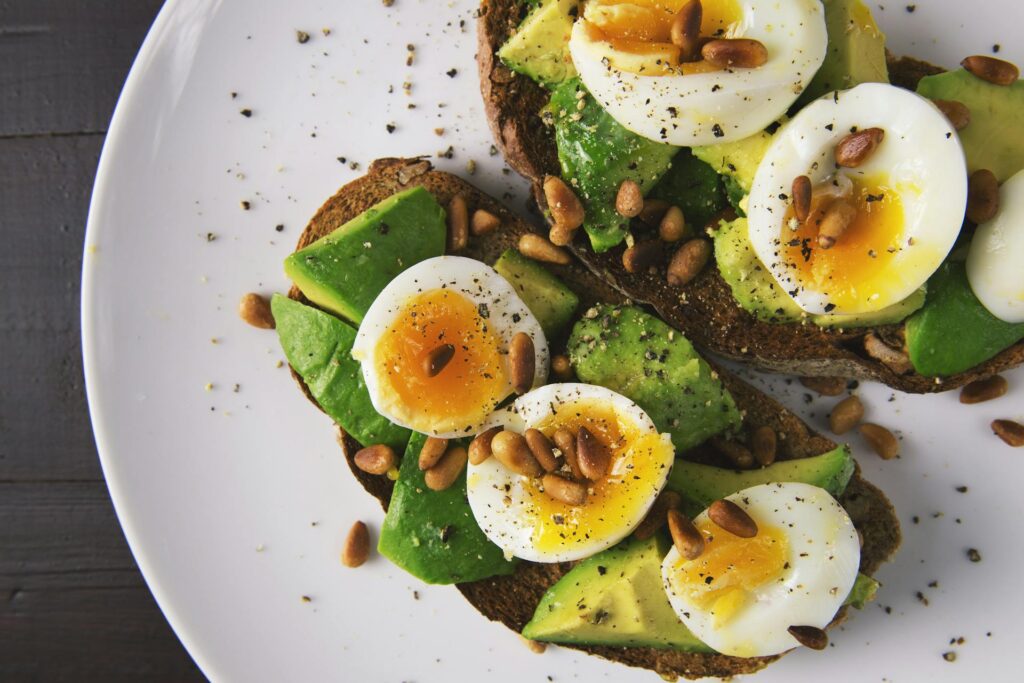
Examples of Low-Carb Diets
- Keto Diet: High in fat, moderate in protein, and very low in carbs.
- Atkins Diet: Starts with extremely limited carbs and slowly increases the amount of carbs eaten.
Low-Fat Diets
What Are Low-Fat Diets?
Low-fat means limiting the quantity of fats consumed during a meal. Many times such diets mostly emphasize more fruits, vegetables, and whole grains.
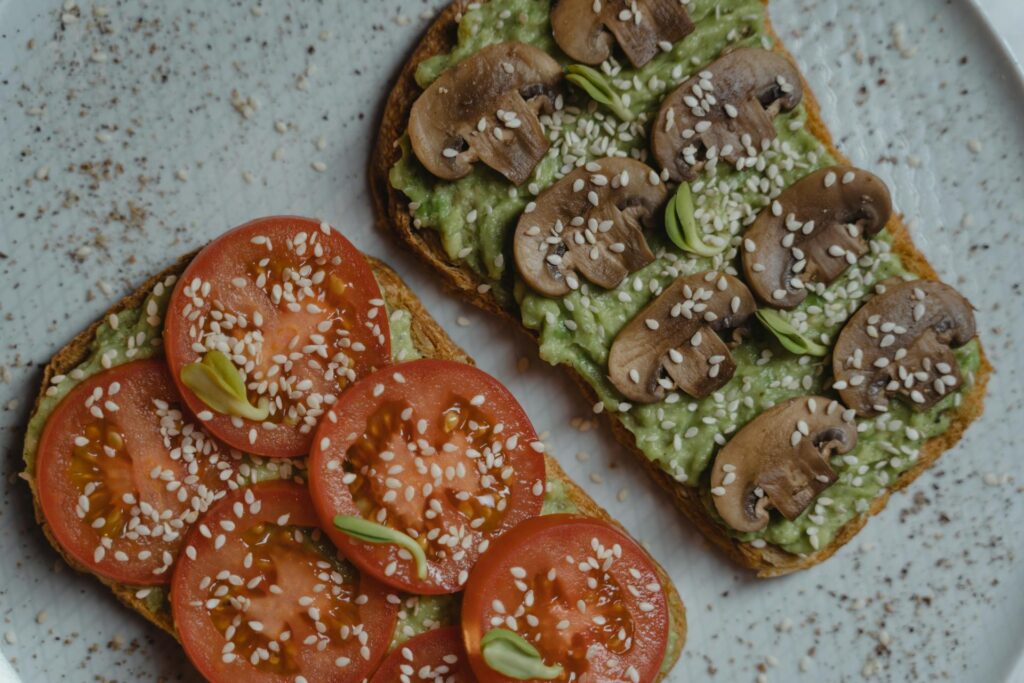
Examples of Low-Fat Diets
- Ornish Diet: Very low-fat, high-fiber plant-based foods are its cornerstone.
- TLC Diet: Aims at lowering cholesterol by reducing on fats in the diet.
Balanced Diets
What Are Balanced Diets?
Balanced diets include carbohydrates, proteins, and fats. They advocate for portion sizes that are not too large and that provide all the requisite nutrients to our bodies.
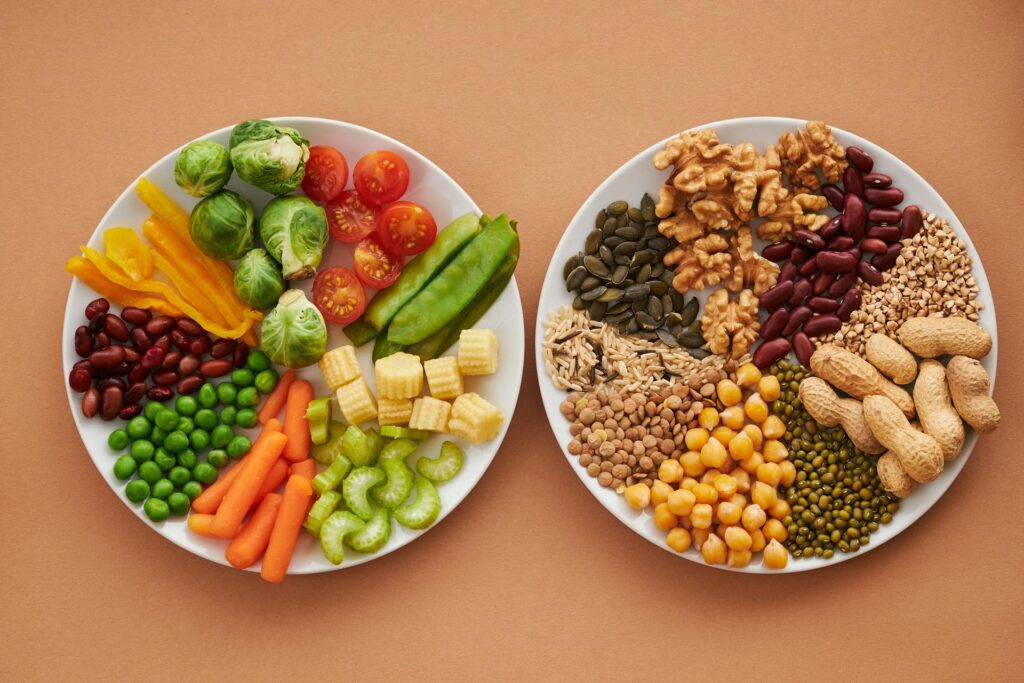
Examples of Balanced Diets
- Mediterranean Diet: Contains fruits, vegetables, whole grains plus good fats.
- DASH Diet: Focuses on reducing sodium levels and heart health promotion.
How to Choose the Right Weight Loss Food Program
Consider Your Preferences
- Food Preferences: Find an inclusive program that offers foods you love eating most.
- Lifestyle: Think about how much time you have available each day for cooking meals as well as if pre-packaged meals are your thing or not.
Evaluate Your Targets
- Weight Loss Objectives: Define the amount of weight to lose and how quickly.
- Health Goals: Take into account any health conditions that may influence your decision, like diabetes or high blood pressure.
Assess the Flexibility of the Program
- Flexibility: Find any program that allows for occasional indulgences and can be adjusted to suit your lifestyle.
- Sustainability: Pick a program you can stick with for a long time.
Benefits of Weight Loss Food Programs
Structured Eating Plans
So structured eating plans eliminate the guesswork associated with meal planning. This will keep you focused and also prevent unhealthy decisions from being made by you.
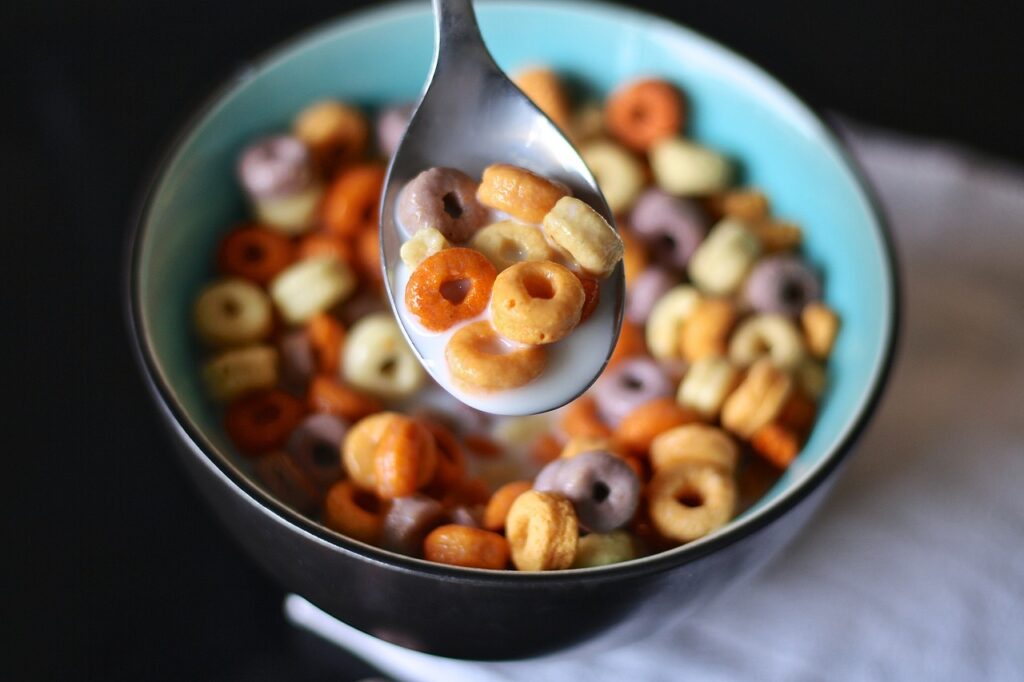
Portion Control
Many weight loss food programs emphasize portion control as a way of preventing overeating and aiding in weight reduction.
Nutritional Balance
A good weight loss food program ensures that all nutrients are supplied while calories are cut down on.
Usual Difficulties And How To Overcome Them
Sticking To The Plan
Obstacle
Often people have trouble complying with a diet plan due to cravings or lack of motivation.
Solution
Set reasonable goals and allow yourself cheat days. Create a support system – friends, online community, etc., to keep motivated.
Hunger and Losing Weight
Challenge
It is very difficult to eat less food when you are hungry.
Solution
Look for a plan that contains lots of fiber and proteins; they will keep you satiated longer. Water consumption should be improved and more meals including snacks.
Finding Time to Prepare Meals
Challenge
It can be challenging to prepare healthy meals when your schedule is tight.
Solution
The key to this challenge lies in selecting programs that have simple, quick recipes or strategies such as meal prepping during weekends.
Popular Weight Loss Food Programs
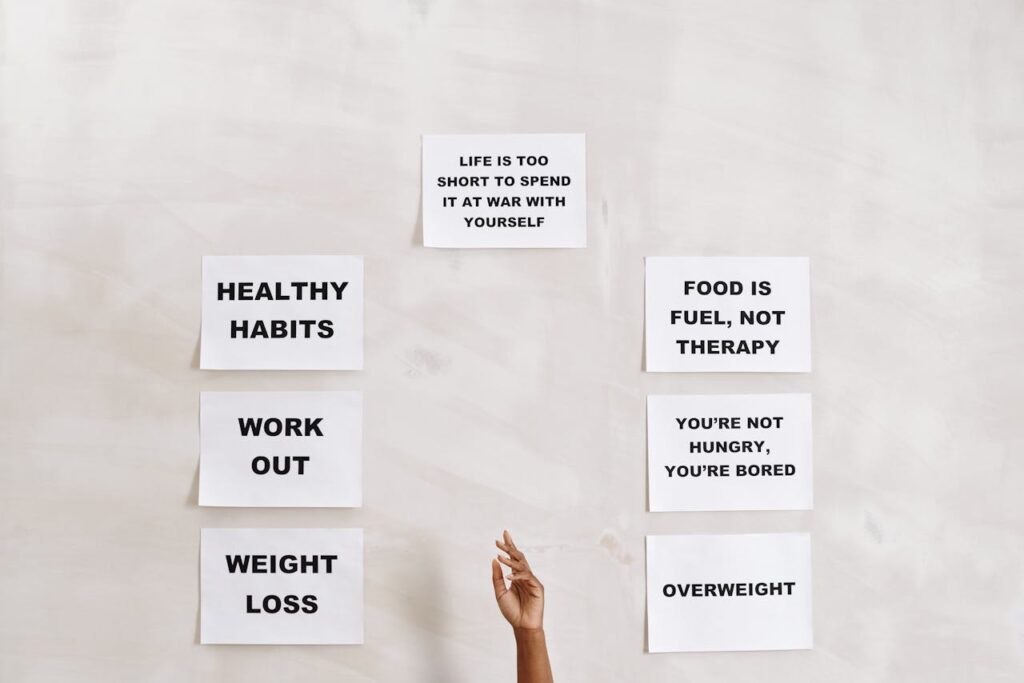
Weight Watchers
Overview
Weight Watchers helps you adopt healthier eating habits by using points. As long as it remains within the allowed points per day range, one can consume whatever he or she loves.
Benefits
- Flexible enough for individual preferences
- Promotes balanced dieting styles
- Incorporates meetings and social networking websites
Nutrisystem
Overview
Nutrisystem supplies meals that are precooked to your doorstep. These meals are controlled in their sizes and made for weight reduction.
Benefits
- It is very convenient.
- There is no need to prepare food.
- The nutrition content is balanced.
Jenny Craig
Overview
Jenny Craig has prepackaged meals and offers personal assistance. The program puts more emphasis on portion control and well-balanced diets.
Benefits
- Individualized guidance
- It is convenient
- Simple rules to follow
Noom
Overview
Noom employs a mobile app that gives personalized meal plans as well as coaching. The program focuses on how people change their behaviors concerning dieting and how this can lead to long-term loss of weight.
Benefits
- Personalized coaching
- Flexible meal plans
- Emphasizes behavior change
Food programs for self-help weight loss
Making your plan

Step 1: Set clear goals.
Define your goals to lose weight and improve your health. Be precise about the size of your weight goal as well as the deadline.
Step 2: Plan Your Meals
Create a meal schedule, that contains carbohydrates, fats, and proteins in a balanced form. Eat whole foods and avoid taking processed items.
Step 3: Track Your Progress
Consider maintaining a food diary or using mobile applications that can help you keep track of what you eat as well as monitor weight gain/loss.
Advice for Being Successful
- Be Consistent: Try to adhere to the plan closely.
- Learn to be adaptive: Feel free to reward yourself occasionally; also be ready to alter plans when needed.
- Find Support: Motivation and encouragement are other aspects of participating in an online team or having one’s buddy around.
Success Stories
Real People with Real Results!
Hearing how others have succeeded is highly motivational. Below are some stories of individuals who have lost their desired weights through different diets they were observing.
Sarah’s Story:
Sarah used Weight Watchers and managed to shed fifty pounds as her achievement. This was made possible by program flexibility and the support system offered.
John’s story:
On the Nutrisystem diet program, John reduced his weight by forty pounds. He found the packaged meals easy and highly nutritious being balanced ones too.
Emily’s story:
Noom helped Emily lose thirty pounds. She received personalized coaching and learned ways of changing negative behaviors into positive ones regarding healthful lifestyle development.
Conclusion
The choice of the right program for weight loss food can make a big difference in your journey to lose weight. There are programs out there for you if you like prepackaged meals, points, or do-it-yourself. Always consider your tastes, objectives, and lifestyle before settling down. Let consistency reign supreme with flexibility and support from at least one other person for heightened chances of success. With the correct plan, achieving your goals on weight loss is possible and enables a happier healthier life.
Frequently Asked Questions
Q1. Can I change from one food program that helps in lose weight to another?
You can switch programs if you find that one is not working for you. However, ensure that each program gets enough time to show results.
Q2. Are food programs designed for weight loss safe?
The majority of the weight reduction diet plans are safe but it is important to consult a health professional before considering any new diet plan.
Q3. Must I exercise while on a weight-loss food program?
Exercise is good for losing excess weight as well as overall general body fitness although it may be optional at times. It is often recommended by many programs that diet and physical exercises be combined.
Q4. Can I use a weight-loss food system if I have dietary restrictions?
Many systems allow people with limited types of diets. Thus, select a suitable program for your needs.
Q5. How long will it take to see results?
The period taken before seeing changes varies depending on the program and the individual involved. For this reason, constancy is key; therefore be patient with your plan and stick with it always.
